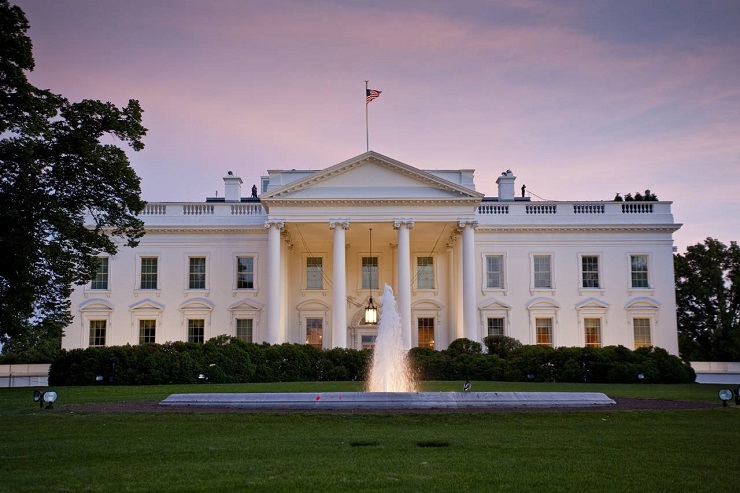The White House has recently published an International Security Strategic Guidance document. Its central claim is that democracy is under threat. Is acknowledges that the reality is that the distribution of power across the world is changing, creating new threats.
It identifies China as becoming “more assertive. It is the only competitor potentially capable of combining its economic, diplomatic, military and technological power to mount a sustained challenge to a stable and open international system”.
The report goes on to claim that Russia remains determined to enhance its global influence and play a disruptive role on the world stage. To this end “both China and Russia have invested heavily in efforts meant to check United States strength and prevent it from defending our interest and allies around the world.”
One has to seriously wonder exactly what planet the Americans are occupying. There is one country that over the past 70 years has used its military and economic power to threaten, dominate and where it felt necessary to attack and occupy those nations that it felt paid it insufficient regard or refused to comply with American wishes. That country is neither Russia nor China, but the United States.
The United States now recognises, at least nominally, that openly attacking other countries will not help it achieve those goals, although the people of Syria and Iraq would cast doubt on the sincerity of their stated belief that open warfare was no longer viable.
The report goes on to claim that their democratic alliances “enable us to present a common front, produce a unified vision and pool our strengths to promote high standards, establish effective international rules, and hold countries like China to account.”
The identification of China as the central threat is the basis of this whole argument. China is clearly perceived as being the one country that can at least reduce, if not eliminate, the United States’ influence around the world. It is the perception of the need to challenge China that is the key to understanding the whole thrust of the United States diplomatic and military effort.
It is a main reason why Biden has re-focused on Europe, increasing United States troops stationed in a number of countries, and making belligerent moves in Belarus and in the Arctic Ocean. It must not be forgotten that Biden was the principal mover behind the Ukrainian revolution in 2014, and not the least of United States intentions was to replace Russia as the military force in Crimea. The Americans have never forgiven the Crimeans for fouling that plan and to this day continues to misrepresent the sequence of events that lead to Crimea re-joining the Russian Federation.
The Biden administration’s representation of China shows a similar cavalier disregard for history. Holding “China to account” is unlikely to have much appeal, not only in China’s home territory of Asia, but throughout the world. China is financing a massive series of developments under its Belt and Road Initiative. The European Union recently listed China as its major trading partner, replacing the United States. This is likely to grow substantially in the future.
Last week the United States secretary of state Anthony Blinken gave a speech in which he seemed to acknowledge that military interactions were a “costly” tactic that “had been tried in the past.” He acknowledged that they hadn’t worked. He vowed that the Biden administration would do things differently.
To which the rest of the world will be duly grateful, but they will suspend judgement until they see some actual proof of this allegedly new policy. Certainly, it is not evident in the United States policy towards Iran. Its offer to re-join the JCPOA agreement is highly conditional on fresh Iranian concessions. The Iranian foreign minister has blatantly stated that they are not interested in any conditions the United States wants to impose on Iran. This is, quite frankly, a common United States tactic to want to change the conditions of membership of any organisation that it deigns to join, or in this case, re-join.
That would be a major understatement, it is a reflection of United States detachment from reality but they could ever believe that the violent overthrow of governments with which they disagreed with ever achieve any sort of acclaim, except perhaps among a few loyal acolytes.
As the admirable Moon of Alabama website points out the United States has never used its military to “promote democracy. Not ever. It has used war to gain markets and power, to destroy the competition.”
A better guide to real United States intentions is to look to its budget, where the US military head for the Asia-Pacific region has recently sought an increase of billions of dollars to this already inflated budget, obviously to control China.
The blunt fact is that the United States is a declining power and China by contrast is rapidly growing. The United States naturally sees China as a threat to the world that it has dominated economically and militarily for the past seven decades. The United States is having enormous difficulty in confronting that reality.
The era of United States dominance of the world has ended and is highly unlikely to ever be recovered. The real question is going to be when the Americans recognise that reality and adjusts their behaviour accordingly, Or whether they will make ever more aggressive moves to maintain their position, thereby threatening the world with a catastrophic war.
Joe Biden is clearly not the man to lead the United States into this new reality. He has shown by his attitude to Iran, Afghanistan (where he will renege on the Trump plan to withdraw troops by May) China, North Korea and Russia among others that the old saying, you cannot teach an old dog new tricks remains very much a metaphor for United States foreign policy.
James O’Neill, an Australian-based former Barrister at Law, exclusively for the online magazine “New Eastern Outlook”.

